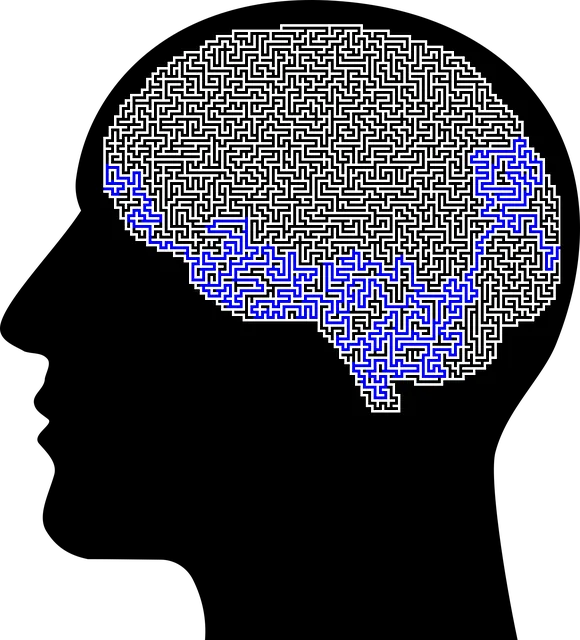Highlands Ranch Kaiser Permanente (HRKP) offers a comprehensive crisis intervention strategy emphasizing immediate support through their dedicated mental health number for severe emotional distress and suicidal ideation. Following evidence-based Mind Over Matter Principles, HRKP conducts thorough risk assessments and provides Social Skills Training to tailor interventions. This holistic approach addresses both urgent needs and underlying factors, guiding individuals towards stabilization, harm prevention, and lasting recovery. Post-crisis care is a key focus, with personalized support to prevent relapse and build resilience, including debriefing sessions, peer support, and self-care practices for both caregivers and the community.
In today’s fast-paced world, crisis intervention plays a pivotal role in mental health care. When faced with urgent situations, effective strategies can make all the difference. This article delves into the essential practices of crisis intervention, drawing insights from the renowned Highlands Ranch Kaiser Permanente approach. We explore resources and support available, offer a step-by-step guide to managing crises, and emphasize post-crisis care for long-term mental wellbeing. For urgent assistance, remember that the Highlands Ranch Kaiser Permanente mental health number is readily available 24/7.
- Understanding Crisis Intervention: A Crucial Role in Mental Health Care
- The Highlands Ranch Kaiser Permanente Approach: Resources and Support
- Effective Strategies for Crisis Intervention: Step-by-Step Guide
- Post-Crisis Care: Ensuring Long-Term Wellbeing and Recovery
Understanding Crisis Intervention: A Crucial Role in Mental Health Care

Crisis intervention plays a pivotal role in mental health care, serving as a lifeline for individuals grappling with severe emotional distress or suicidal ideation. It’s a specialized approach designed to provide immediate and intensive support during moments of crisis, aiming to stabilize individuals, prevent harm, and facilitate recovery. At Highlands Ranch Kaiser Permanente, the mental health number is a crucial resource, connecting people in need to trained professionals who can offer crisis intervention services based on evidence-based Mind Over Matter Principles.
Effective crisis intervention involves a comprehensive risk assessment for mental health professionals to understand the individual’s situation, history, and potential risks. By utilizing this assessment alongside Social Skills Training, practitioners can develop tailored interventions that address not only immediate needs but also underlying factors contributing to the crisis. This holistic approach ensures individuals receive the support they need to navigate their challenges and move towards lasting recovery.
The Highlands Ranch Kaiser Permanente Approach: Resources and Support

The Highlands Ranch Kaiser Permanente (HRKP) Approach prioritizes holistic crisis intervention, offering a suite of resources and support tailored to individual needs. Their comprehensive strategy includes access to mental health professionals via the HRKP mental health number, ensuring prompt assistance during emergencies. This dedicated line connects individuals to skilled counselors who provide immediate relief and guidance, fostering a safe space for vulnerable patients.
Beyond crisis management, HRKP promotes proactive well-being through programs focusing on stress management, self-esteem improvement, and depression prevention. Recognizing the interconnectedness of mental and physical health, their approach encourages a balanced lifestyle that nourishes both aspects. By integrating these strategies, Highlands Ranch Kaiser Permanente aims to empower individuals not just to survive crises but to thrive with enhanced resilience and overall well-being.
Effective Strategies for Crisis Intervention: Step-by-Step Guide

In moments of crisis, swift and effective intervention can make a significant difference in an individual’s life. For those seeking support, the Highlands Ranch Kaiser Permanente mental health number offers a lifeline, connecting individuals to specialized care. When implementing crisis intervention strategies, a structured approach is key. Here’s a step-by-step guide:
1. Assess the Situation: The first step involves understanding the nature of the crisis and gathering essential information about the individual in distress. This includes recognizing warning signs and risk factors, such as suicidal ideation or acute psychotic episodes.
2. Establish Safety: Ensuring physical safety is paramount. Create a calm environment free from potential hazards or triggers. Encourage deep breathing exercises or other relaxation techniques to help de-escalate the individual.
3. Active Listening: Train yourself in active listening skills, which involve giving your full attention and reflecting back what the person is saying to confirm understanding. This validates their feelings and helps build rapport.
4. Empathy and Validation: Show empathy by acknowledging their emotions without judgment. Validate their experiences, letting them know their feelings are understood and accepted.
5. Social Skills Training: Mental health professionals should incorporate social skills training into their repertoire. Teaching individuals how to communicate effectively during crises can enhance their ability to seek help and build support networks.
6. Risk Management Planning: Develop a risk management plan tailored to the individual’s needs, outlining potential triggers, warning signs, and coping strategies. This proactive approach enables individuals to better manage future crises.
7. Connect to Resources: Utilize available resources like mental health professionals, support groups, or hotlines (e.g., Highlands Ranch Kaiser Permanente). Providing a list of helpful contacts empowers individuals to access ongoing care and guidance.
8. Emotional Healing Processes: Facilitate emotional healing by encouraging open dialogue about feelings and experiences. Offer coping mechanisms tailored to their unique needs, fostering resilience and self-care practices.
Post-Crisis Care: Ensuring Long-Term Wellbeing and Recovery

Post-crisis care is a vital component of any effective crisis intervention strategy, focusing on the long-term wellbeing and recovery of individuals affected by traumatic events. This support extends beyond initial stabilization, aiming to prevent relapse and foster resilience. At Highlands Ranch Kaiser Permanente mental health services, professionals recognize that recovery is a personalized journey. They offer tailored resources and guidance, ensuring individuals have access to ongoing care. This holistic approach addresses not just the symptoms but also the underlying factors contributing to vulnerability.
By prioritizing post-crisis care, healthcare providers like those at Kaiser Permanente Highlands Ranch, can effectively implement burnout prevention strategies for themselves and their teams. Balancing the demands of crisis intervention with promoting positive thinking and confidence boosting activities is essential to avoid professional exhaustion. This includes regular debriefing sessions, peer support networks, and self-care practices that empower both caregivers and the community they serve.
Crisis intervention plays a pivotal role in mental healthcare, offering immediate support and guidance during challenging times. The proven strategies outlined in this article, including those employed by the Highlands Ranch Kaiser Permanente team, provide a framework for effective crisis care. By following a structured approach, from initial assessment to post-crisis follow-up, professionals can help individuals navigate crises and promote long-term recovery. Remember, access to mental health resources, such as the Highlands Ranch Kaiser Permanente mental health number, is essential during these moments, offering a lifeline for those in need.






